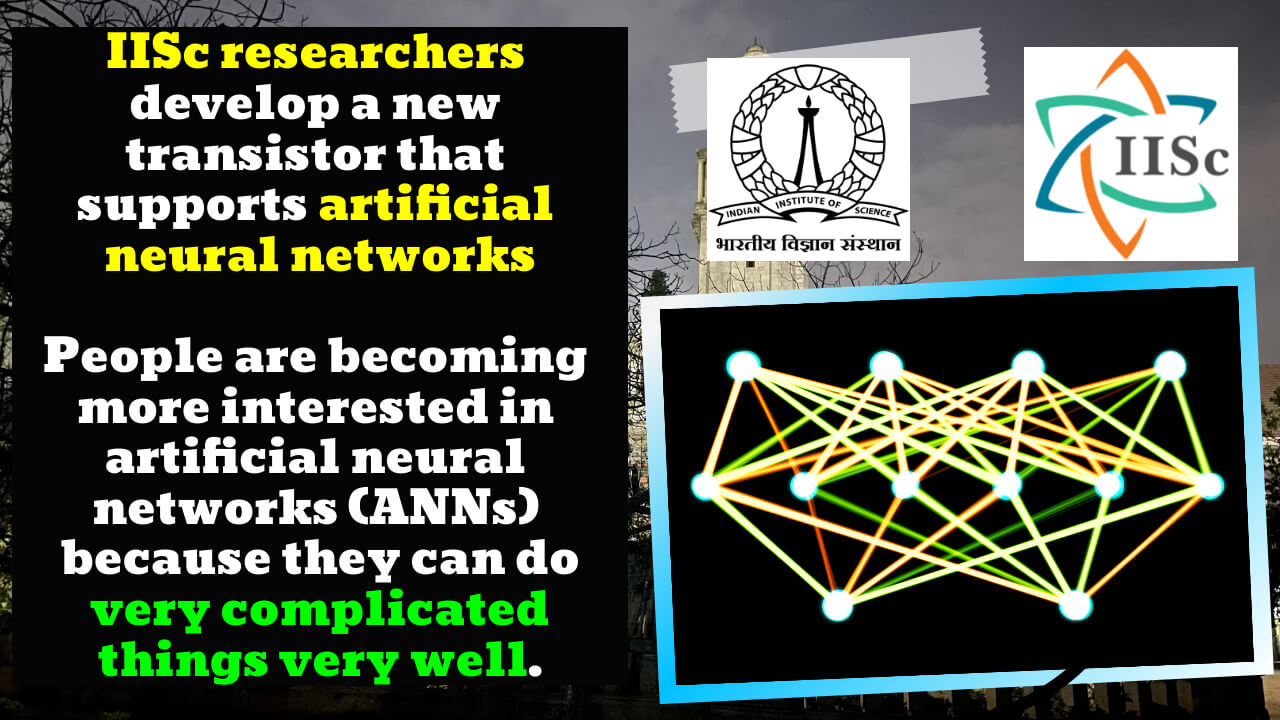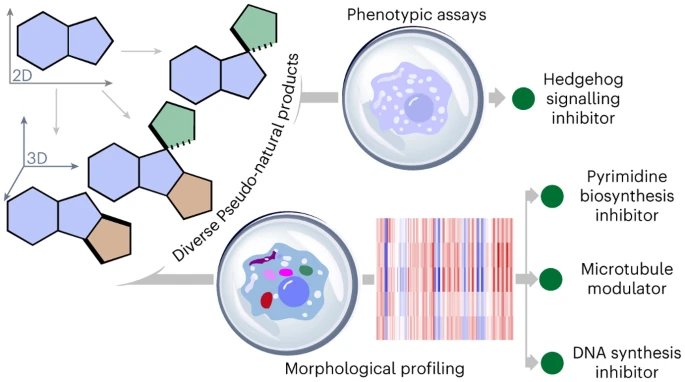In pattern recognition, artificial neural networks (ANNS) are becoming more and more popular because they can do very complicated things. Many things that look like neurons and synapses junctions run at high voltages and have a lot of different types of conductivity, which makes it hard to make efficient ANNs with them.
Key Highlight:
- Artificial neural networks (ANNs) are growing because they can do very complicated things.
- Existing models of neurons and synapses, on the other hand, run at high voltages and have a range of conductivity.
- Researchers at IISc say they’ve developed a new transistor that could help.
- They found out how it responds to voltage pulses, similar to how electric signals move through neurons.
Artificial neural networks (ANNS) are becoming more popular because they can do complex tasks, especially pattern recognition. These networks are made up of electric circuits or algorithms that communicate like neurons in the brain.
The problem is that existing devices that look like neurons and synapses (junctions between two neurons) run at high voltages and have different conductivity, making it hard to build efficient ANNs. Researchers at IISc say they’ve made a new transistor that can help. It says that “..to address these concerns, we have made a transistor that is found to have some of the characteristics of a biological synapse.”
They made a transistor out of multi-layered indium selenide (In2Se3), an inorganic compound made up of both indium and selenium. They then tested how the transistor responded to voltage pulses, like the electric signals in neurons. ” Biological synapses uniquely communicate with each other. In some cases, a neuron that is activated for a long time could make another neuron that gets signals from it less or more responsive to them.
Compared to a single pulse, the neuron in the post-synaptic neuron responds differently to pulses that are very close together, the researchers said, adding that the output characteristics of their device captured these important aspects of how the neuron responds. “Use the device’s responses to build a computer model that looks like an ANN. A database of handwritten numbers helped them train the ANN. It could recognize 93% of the numbers it was shown. The IISC added.
What is Artificial neural networks ?
The ANN model simulates the human–brain processes through computations and mathematics. Image and voice recognition, robotics, and using ANNs are all recent advances in artificial intelligence research. The architecture of ANN models is based on the biological nervous system. Like the human brain, ANN models are made up of complex, nonlinear neurons. Weighted links connect the neurons. Everything in ANN models is calculated through learning and training, from data collection to network structure and weights/bias trade-off.





[…] Researchers at IISc come up with a new transistor that support… […]